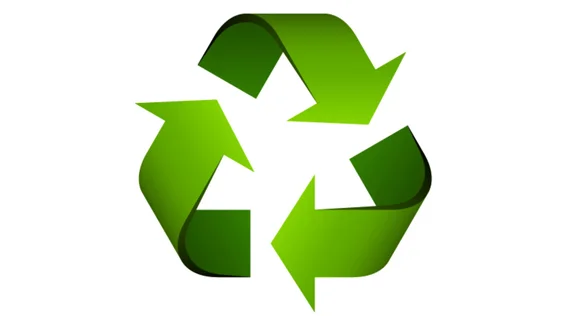
SEATTLE (Waste Advantage): Braskem, a polyolefins producer in the Americas and a leading producer of biopolymers in the world, announced its polymer recycling technology research partnership has been awarded a $600,000 Research, Demonstration, and Development (RD&D) grant from the Reducing Embodied Energy and Decreasing Emissions (REMADE) Institute, a public-private partnership established by the United States Department of Energy (DOE). The winning RD&D project is focused on innovating a new recycling process technology to extract pure polypropylene (PP) from PCR multilayer packaging waste that is currently hard to recycle. The project is a partnership between Braskem America, Michigan Technological University, and the University of Wisconsin-Madison, all of which are providing additional foundational project funding. REMADE is the first institute in the U.S. dedicated to accelerating the nation’s transition to a Circular Economy.
“We are honored to have this innovative plastic recycling project recognized by the REMADE Institute, an organization that is dedicated to investing in technology that is vital for the future of manufacturing,” said Ana Camilo, Specialist Researcher, Braskem. “This funding will enable Braskem, Michigan Technological University, and the University of Wisconsin-Madison to revolutionize the circular re-use of multilayer plastic and potentially create a pathway to divert hard-to-recycle plastic waste from landfills into valuable new material feedstock sources.”
Braskem RD&D Partnership Project Awarded Funding by REMADE
Demonstration of Solvent-Based Plastic Recycling to Extract Pure Polypropylene from PCR
Professor George W Huber, University of Wisconsin-Madison, commented, “Sustainability is a collaborative effort. It is critical that the companies in the plastic industry work together with academia and government agencies to bring innovative recycling technologies to the market.”
Professor Ezra Bar-Ziv, Michigan Technological University, commented, “We are excited to design, build, and operate a unique STRAP plastic recycling pilot plant that will be used to produce larger quantities of high-quality recycled resins so that we can validate our resins in several downstream applications. We expect to use this system to analyze a wide range of feedstocks and de-risk STRAP technology.”
The project is well aligned with Braskem’s ambition to expand its portfolio to include 300,000 tons of thermoplastic resins and chemicals with recycled content by 2025 and 1 million tons of such products by 2030. In addition, Braskem seeks to reduce greenhouse gas emissions in scopes 1 and 2 by 15% in 2030 and achieve carbon neutrality by 2050.
The REMADE Institute enables the early-stage applied research and development of key industrial platform technologies that could dramatically reduce the embodied energy and carbon emissions associated with industrial-scale materials production and processing. By focusing its efforts on the technical and economic barriers that prevent greater material recycling, recovery, remanufacturing, and reuse, the REMADE Institute seeks to motivate industry investments to advance technology development and support the U.S. manufacturing eco-system. The U.S. Department of Energy and REMADE selected 14 projects in October 2023 with a combined total of $9.8 million in research and development funding. Since the Institute’s founding in 2017, REMADE has launched or selected nearly 100 R&D projects, representing a total combined value of nearly $100 million.
The circular economy is a sustainable model that aims to minimize waste by keeping resources in use for as long as possible, extracting their maximum value while in use, and then recovering and regenerating products and materials at the end of a resource’s life cycle. Not only does this reduce environmental impact, but it also offers new business opportunities and economic benefits, supporting innovation, job creation, and global competitiveness.
REMADE-funded research projects seek to innovate industrial-scale materials production and processing, achieving multiple positive impacts among the following Target Technical Performance Metrics (TPMs), including:
According to the U.S. Department of Energy, manufacturing accounts for 25% of U.S. energy consumption at a cost of approximately $150 billion. Based on data from the U.S. Environmental Protection Agency, industry is the single largest contributor to greenhouse gas emissions in the nation, at 30%. By embracing the circular economy, REMADE’s investments ensure that America’s manufacturing sector remains globally competitive while moving the nation closer to meeting the clean energy goals set forth by the Biden-Harris Administration including achieving a net-zero-emissions economy by 2050.
Courtesy: www.wasteadvantage.com



| Copper Scrap View All | |
| Alternator | 0.39 (0) |
| #1 Copper Bare Bright | 3.98 (-0.05) |
| Aluminum Scrap View All | |
| 356 Aluminum Wheels (Clean) | 0.77 (0.01) |
| 6061 Extrusions | 0.67 (0.01) |
| Steel Scrap View All | |
| #1 Bundle | 360.00 (0) |
| #1 Busheling | 380.00 (0) |
| Electronics Scrap View All | |